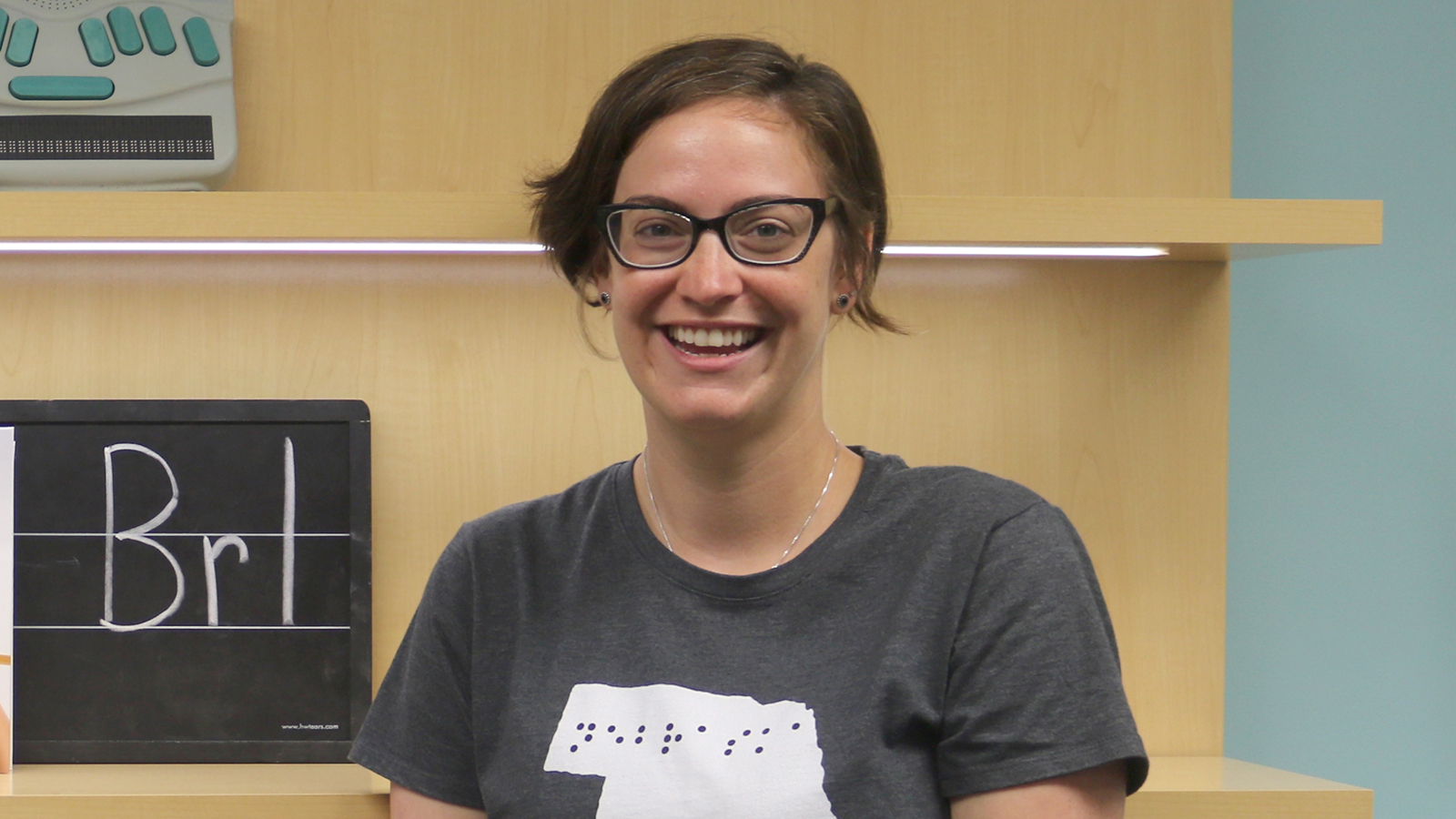
Continued growth motivates Mackenzie Savaiano in development of visual impairments program
18 May 2021 By Kelcey Buck
When Mackenzie Savaiano arrived at the University of Nebraska-Lincoln in 2014, she knew there was a need to grow the training program for teachers of students with visual impairments, but it was the support at Nebraska for expanding that program that both surprised and excited her.
“The people in Nebraska are the real draw,” Savaiano said. “At my interview for the position I have now, there were faculty from the university, teachers from the public school and the school for the blind, and a representative from the State Department of Education. I have never seen a group like that come together and express such investment in the university preparation faculty and program. I realized pretty quickly that this was a unique opportunity to really enact change and develop something impactful.”
An assistant professor of practice, Savaiano coordinates the graduate program in visual impairments, and distance education program offering options leading to a master’s degree, an endorsement, or a graduate certificate in sensory disabilities.
A native of New York, Savaiano studied English education as an undergrad. While looking for a summer job, her mom, who was a special educator, got her an application to work as a paraeducator in their summer programs. Savaiano was placed in a summer school for children with visual impairments and children who were deaf or hard of hearing. A young student participating in that program taught her braille that first summer, and that’s what set Savaiano on her current path. She worked there for four summers and fell in love with the visual impairments specialty area.
After finishing her bachelor’s degree, Savaiano went on to earn her master’s degree in Teaching the Blind and Visually Impaired. She then completed her doctorate in special education specializing in visual disabilities at Vanderbilt University before heading to Nebraska.
When Savaiano took over the visual impairments program at Nebraska, there were a total of 19 students – eight who were finishing and 11 who had recently started. Since then, she has mentored nearly 70 more teachers through the program, including those currently enrolled. Under Savaiano’s direction, there are now students pursuing doctorates focused on visual impairments – one has finished, two are currently enrolled and a fourth is starting in the fall.
“I think the growth we have experienced is a direct result of the amazing people in the region who support this work and collaborate to accomplish it,” Savaiano said.
Savaiano has also grown the program’s funding through federal grants. When she arrived, tuition support was being offered only to Nebraska residents. The federal grants she has helped secure have helped cover the cost of tuition for any individuals who wish to come through the visual impairment personnel preparation program.
“The cost of graduate training is a barrier for many non-traditional students, and I love that we can offer significant tuition support to reduce that barrier as much as possible.”
More recently, she has also helped expand the program’s offerings to now include an orientation & mobility training program to train specialists who teach individuals with visual impairments the skills needed to safely and independently travel within their environment.
“This is something that has been a need for a long time and to be able to hire new faculty and develop new coursework has been amazing,” Savaiano said.
Savaiano was recently promoted to associate professor of practice, effective July 1. For her, it is confirmation that she is indeed developing an impactful program.
“Being promoted is reinforcement that what I have been working on is needed and is valued.”
She isn’t complacent in her accomplishments, though, and is focused on continuing to grow the visual impairments program in the next few years.
“I always have big goals for our programs,” Savaiano said. “I hope to secure more grant funding and to expand our programs to have more content at the age extremities of our population: infants/toddlers and adults with visual impairments.”
Special Education and Communication Disorders